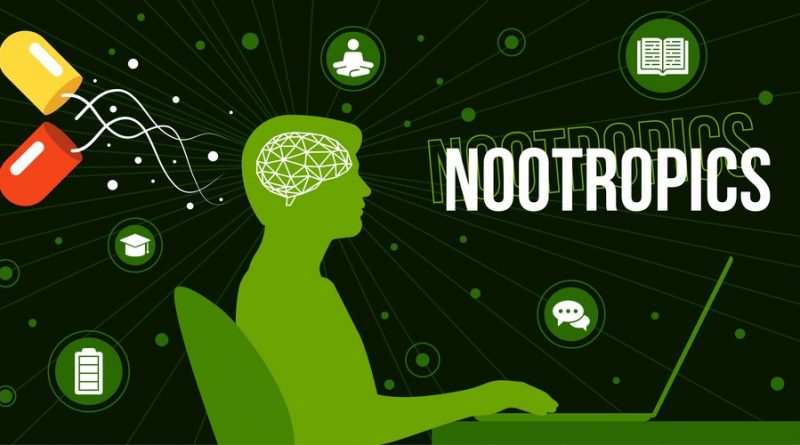Nootropics May Extend Lifespan After Getting Dementia
There are several causes for people to seek medical help, and dementia is one of the most prevalent ones. People are indeed living longer than ever before. However, this also means that chronic medical disorders are more likely to develop in people. For example, dementia. Alzheimer’s disease is one of many various varieties of dementia, and it is also one of the most prevalent. So, it is important to consider measures to stop dementia from forming.
The use of nootropics is one possible form of treatment. Moreover, experts are also carrying out regular research studies on them. One such study has found that nootropics can increase someone’s lifetime after having dementia.
How did the study work?
In the research study, a group of experts examined people diagnosed with dementia. Then, after classifying individuals into several groups according to their available treatments, they examined their median survival times. It found that people with dementia who received nootropic and anti-dementia treatment tended to live longer than those who received no care. According to the study’s findings, using nootropics to treat dementia patients increased their odds of living longer.
What is Nootropics?
Nootropics, also known as “smart drugs,” are a family of substances. It can improve brain function. We often refer to them as substances that improve memory or cognition.
Nootropics on prescription are drugs with stimulating effects. They can lessen the effects of medical disorders like Alzheimer’s disease. Additionally, they can help with narcolepsy and attention deficit hyperactivity disorder (ADHD).
It also includes over-the-counter medications that improve brain function or focus. For example, caffeine and creatine. They do not treat illnesses. However, they can have some impact on memory, thinking, or other mental processes.
Prescription Nootropics
A physician can prescribe nootropics to treat a specific illness. Usually, the medication is a stimulant that you can use to treat dementia. Additionally, it can treat narcolepsy, ADHD, or other conditions of a similar nature.
Among the prescription nootropics are:
- The stimulant modafinil (Provigil), treats narcolepsy’s abrupt drowsiness.
- Adderall, which contains amphetamines. It can manage the symptoms of ADHD.
- Methylphenidate (Ritalin) is a stimulant that can handle the symptoms of narcolepsy and ADHD.
- Memantine (Axura), treats symptoms of Alzheimer’s disease.
Despite their potential for treating particular medical ailments, you should not use these without a prescription.
Much like all prescription drugs, they include risks of interactions and negative effects. Therefore, a person should only use them under a doctor’s supervision.
Prescription nootropics often cause the following negative effects:
- high blood pressure
- a fast heart rate
- insomnia and other sleep disturbances
- trouble with vision
- addiction
Some evidence shows that those who use prescription nootropics to enhance brain function are more likely to engage in impulsive activities. For example, unsafe sexual practices.
How do Nootropics work?
Nootropics come in a wide variety of forms. However, these treatments have proven to strengthen many of the neurological pathways that weaken dementia. When neurotransmitters stop functioning, dementia occurs. Their mental skills can deteriorate, and their nerves can not perform adequately. However, when someone uses nootropics, they can protect the pathways. Moreover, it might be possible for someone to lessen their risk of dementia by keeping them open and functional. Even if someone already has dementia, these supplements can reduce the course of the symptoms and lengthen their life.
How should you choose Nootropics?
There are many different types of nootropics out there. Therefore, before choosing, you should weigh the advantages and disadvantages of each choice. For example, many people have traditionally used natural nootropics like ginseng. There are more options, and they may each function differently for certain people. Due to this, it could be beneficial to take into account what others have to say about certain nootropics. The ideal nootropic for one person could not be the best choice for another. Whether someone wishes to enhance their memory, attention, or general cognitive function will depend on their goals. Nootropics are even used by some people to address mental health problems.
Can physicians prescribe Nootropics?
Some people are curious about whether a doctor can prescribe nootropics. Since this supplement category has a wide range of advantages, the confusion is valid. While there are many options for doctors, one of the major advantages of nootropics is that many of them are available over the counter. As a result, it is not necessary to get a prescription to take nootropics. However, it is important to consult a doctor before doing so for the first time. Some people could be using prescription drugs that may interact poorly with nootropics. Then, it’s important to start with a low dose while using nootropics for the first time. If the initial dose has no negative side effects, only then you should increase the dose.




